The latest stats for UK net migration show annual net migration of 239,000 (Q1 2022). This used to be roughly split between EU and non-EU migrants. But, since Brexit, there has been a big change with 437,000 immigrants from Non-Eu and 195,000 from the EU.

- In Q1 of 2020, there were 437,000 annual immigration from Non-EU countries and 195,000 from EU Countries
- Net migration of EU is now close to zero, with just 58,000, compared to 316,000+ from outside EU.
Reasons for migration into the UK
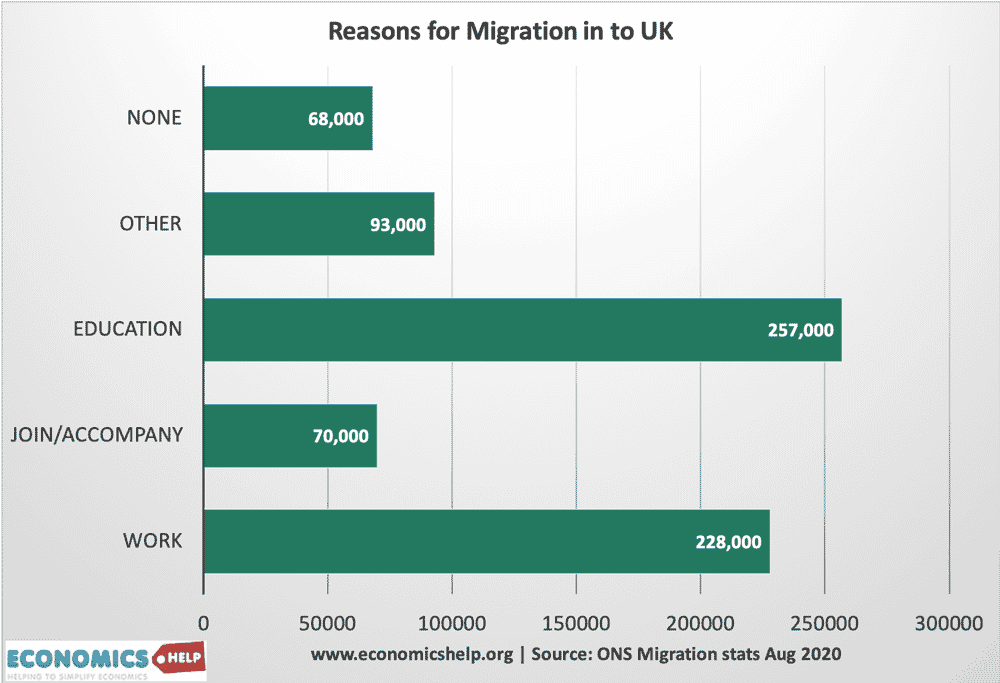
- According to data by the ONS, the biggest reason for net migration into the UK is to pursue education studies. This accounts for 257,000 (Nov. 2014)
- The second biggest reason is work related 228,000
- The third biggest reason is to join family already living in UK or accompany partner moving to UK – 70,000
- Other reasons 13,000 includes vague responses, such as ‘coming back to live’
Asylum seekers
- 14,734 people were granted asylum in 2021
Reasons for migration depend on country of origin
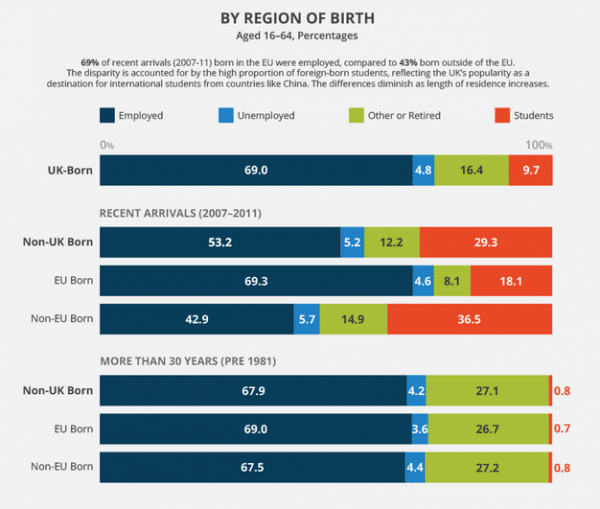
- For recent arrivals (2007-11) study is one of main reasons for migration.
- Employment and unemployment rates for UK citizens and EU migrants are very similar.
Employment status of migrants by country of Birth
There are big difference in the economic status of migrants, depending on country of birth. Chinese migrants are likely to be students (75.6%). This compares with Polish migrants where only 8.6% are students, but Polish migrants have the highest % in work (78.1%). Polish levels of employment are slightly higher than UK born residents.
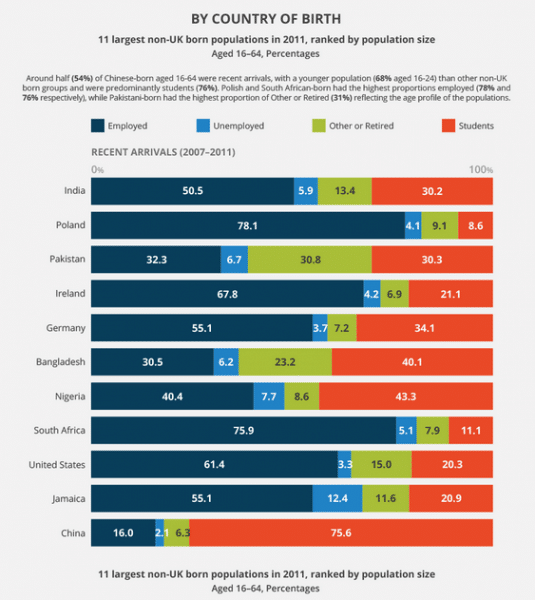
Migrants who have lived in UK for more than 30 years are more likely to be retired ‘other’ because of their different age profile.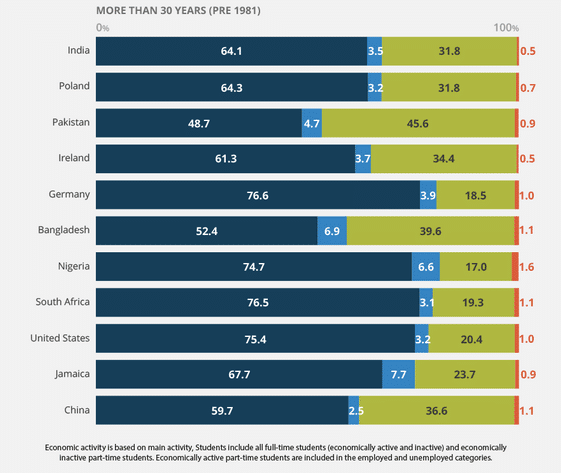
Additional facts of interest from ONS
- Almost 9 in 10 non-UK born residents could speak English ‘well’ or ‘very well’.
- Recent arrivals were more likely to report some kind of qualification (89%) than migrants who have lived 30+ years (68%)
- 6 Facts about migration
Net migration into the UK
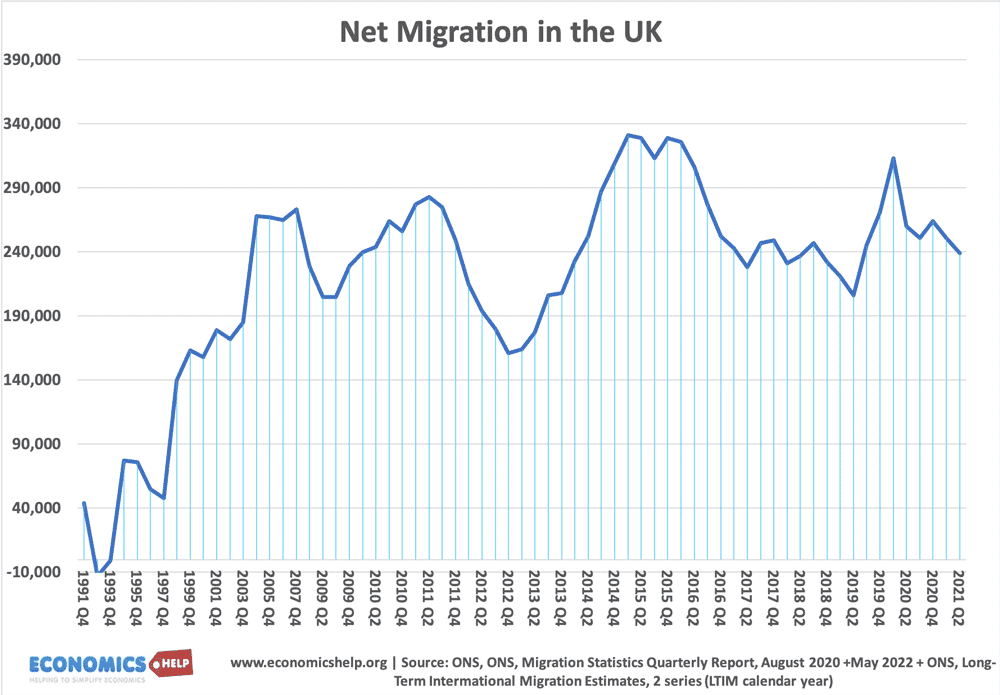
.
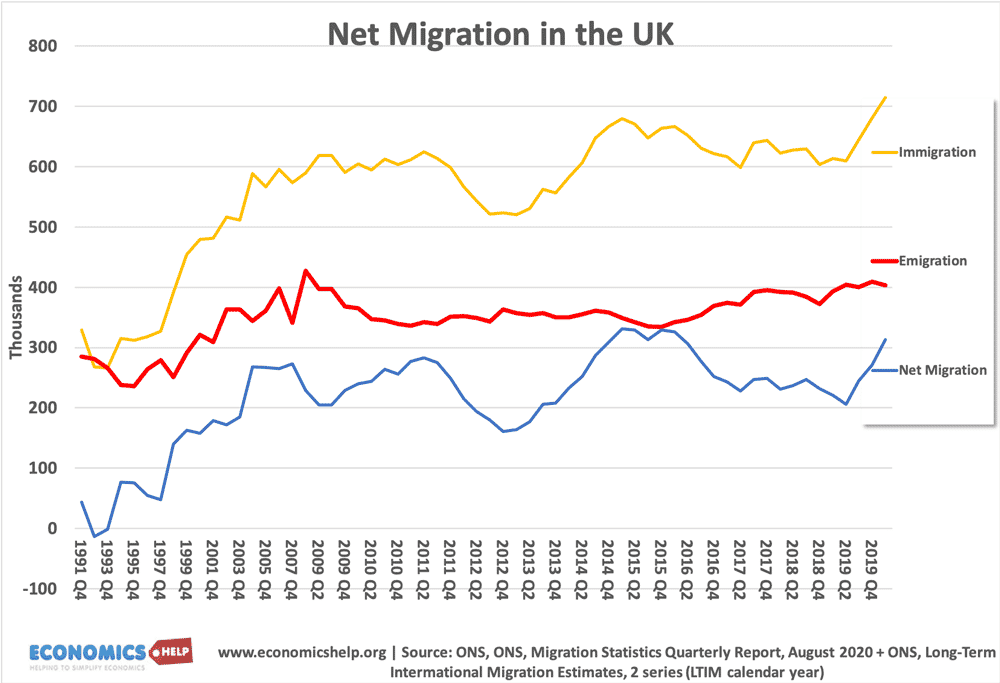
Related pages

The overwhelmingly large proportion of net migration allegedly explained by “formal study” is odd. A typical degree course lasts 3 years at the end of which I would expect most immigrants to go home. If in fact a large proportion stay on in the UK, the “formal study” is not an accurate description of the reasons for the migration.
A more accurate description would be something lijke “study with a view to converting that to permanent residence in the UK”.
Thanks Ralph, a good point.